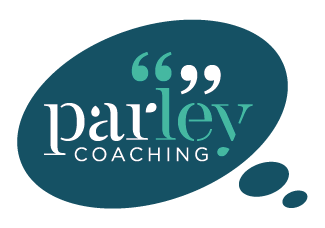“Live the life you have imagined”
Henry David Thoreau
One of the goals I set myself for April was to write about goal setting. Okay, so it’s May. The truth is that it is a hard topic to reflect on. Goals are often considered an important part of coaching. They have been an important part of my striving life. The goal to get into my first football team. The goal to climb Helvellyn from Patterdale over Striding Edge. The goal to get into my school, university, first job. I am competitive and driven, sometimes more than I feel happy about. And goal setting, in some form, is critical in business and so for all my clients.
So why does my gut tell me that goal setting is overrated? Or at least something to be “lighter” with. I remember a cup final goal being scored by the football team that I used to coach. The effort that had resulted in that goal, the dream and perspiration. The cheering fans (parents). The sense of achievement. The trophy. But is that what your working life is really like? It feels like a very narrow, albeit stereotypical, view of success. If this is what goal setting is about, it isn’t for everyone and that probably explains why I read most of the wise quotes from famous people about setting lofty goals… and want to throw up.
I now believe that goal setting for individuals can hold us back, and is often part of the “getting in the way of ourself ” syndrome?
Is the answer to challenge ourselves to question the inflexibility and logic of deadlines and obsession with outcomes and goal scoring?
Is there a better way to help my highly business oriented clients navigate their futures?
Nausea
There is very little not to love in the writing of the great Thoreau, but not everyone wants to walk into the woods to find their wisdom. There are other quotes on goals that I like. Stephen Covey’s “Begin with end in mind” is one; simple but more compassionate and less strident than the plethora of Northern European and American Dream infected “dream big and you will succeed” what are you waiting for ditties. But are they always helpful? The people who say these things are people who have succeeded. They have often then reinvented their success as deliberate and planned. The suggestion is humility – anybody can do it. The impact is often the opposite.
The truth is that most people find setting personal goals incredibly difficult. I realised just how difficult over years of building strategic plans and, more recently, in coaching. Almost all clients stumble over meaningful goals. Some look at me as if to say – isn’t that what I’m paying you for? Others become almost emotional. Why do I find this so challenging, they often say. Every now and again, a client will be flush with ideas on their goals. But it is far more common for the future to be opaque. And when the thought process has led to opacity, it doesn’t take a genius to know what this usually results in.
Why?
I believe we often fall at the first hurdle of mapping out our futures? Why?
Well, first, because it is hard to predict how we will feel about something until we get there. We kid ourselves that we can predict now what we will be feeling in one week, one month, one year, ten years. But we can’t for all sorts of obvious reasons associated with data, subjectivity and our reference points. Daniel Gilbert’s “Stumbling on Happiness” is a wonderful canter through the associated psychology. How often have you set a goal and then been surprised by how you feel when you achieve it? It it even possible always to create robust goals for the future. Or are we kidding ourselves?
Secondly, “I’m no good at this…I’m not creative”. Creativity has been sucked out of us by education and a belief that creativity is about outcome, about us being good (no, perfect) at something. After years of believing in this, our confidence in ourselves as a repository of the best ideas for our future is low. Write down the things about your future you are sure about. Hard? This is how many people fail with goal setting.
Thirdly, goal setting reminds us of accountability (and many of you will be saying – yes, and rightly so). It reminds us of goals set by others for our execution. Goals are often code for targets, for outcomes, for how others will judge us, how others will pay us. This makes us defensive. This makes us set defensive goals. This means that the goals set are often cautious, uninspiring and forgotten. These goals further infect the reality of our relationship with goal setting.
Fourthly, we are taught by the wrong people what goals should look like. Goals should be SMART (the mnemonic acronym that celebrates its own genius in a way that draws many towards it – Specific, Measurable, Attainable, Relevant, Time-based). Now far be it from me to say that all management thinking regarding the importance of setting SMART goals is bunkum because it isn’t (and I do work at creating SMART goals with my clients). But I am increasingly convinced that SMART goals should come later in the thinking process. Much later. Despite our outcome-obsessed, let’s measure everything society encouraging us to place the SMART goals first.
Finally, confidence and fear. Isn’t it ironic how our fear of failing stops us taking part. Ah, I hear you say, he himself is now going to go all Hollywood. No, honestly. The answer to this is not by setting more goals and going for it. The answer is more nuanced, I believe. The answer lies in remembering that the purpose of all future-scaping is to help you with the present. The right here and now. Not telling us how far we have got to go. I bet Sir Edmund Hillary didn’t start with a vision of Everest.
The Alternative
Before coming back to the present, I want to linger in the future.
For me – and clients – the answer has usually been a step away from SMART goals. To be more ambitious and examine our vision. The life you might imagine. Not in the sense of a bucket list of required trophies in the trophy cabinet.
To give a non-corporate example, a wannabe artist may strive for an audience and acclaim but is unlikely to start with a clear view of the galleries they must exhibit at, the critic that needs to endorse their work, the money they need to earn. They must start with a vision of being a great artist, have focused on the niche, and only then begun to consider how to get there.
When Michael Jordan was hanging from the washing line as a teenager (which he did because he was worried that he had stopped growing), was he setting goals around Chicago Bulls and becoming the most decorated NBA basketball player of all time. Or was he just hanging around his more general vision – to be the best basketball player he could be?
Isn’t it easier to start with a more general – “What am I trying to do here? What is my purpose? What are my values? What is my thing?”
A good coach will help you focus on what your thing might be.
What then?
The Practice
An assessment of your imagined life (which to be clear absolutely can involve money and power and material possessions – whatever is your thing) is critical. Some writers have called this finding your “end goal”
Then what?
I have been influenced by the musings of Seth Godin and in particular his book “The Practice”. His vision contests the (often highly masculine) competitive, outcome based way of working towards your dreams. He argues that once we have our vision, then get practical. Reflect on the things we can do now, right now, that help that become a reality, like starting to paint or hanging from the washing line. Invest in the things now that may or may not prove to be invaluable in steering our course. Review our progress, build our plan as we go along.
When I left 29 years of law, my busy mind went into overdrive. What are you going to do? How much money are you going to earn? Who are your clients? When are you going to get your trophy? It has taken time to relax and this in part followed a reappraisal of my future-scaping. Instead of asking questions which required simple answers and had clear outcomes attached, how about I simply say: I want to be the best coach I can be by the age of 55. I imagined what that would look like (in a very general sense) and how that would make me feel. It excited me.
I then developed the business and my commitments around one simple rule. Will this help me be the best coach I can be by the age of 55? I started to put all my focus into the small things that would add up to help me do that. A comfortable office chair. An incorporated company, Parley Coaching. The website. The investment in my process, of learning, practice, commitment, business development, networking (I needed my old network but I needed to build a new network too), not with a view to this outcome or that outcome, but to a clearer vision. A clearer vision from basic baby steps. I also turned down opportunities where they didn’t obviously build to the better coach rule. I have become practice focussed rather than outcome focussed for the first time since my very early years as a corporate lawyer.
I acknowledge that this process is not always easy but good coaching can help you find the “end goal” and the practice we then need to invest in will follow.
And what about SMART goals?
Everybody is different. I remember one going-places lawyer from my very early days in law. He had perfectly ironed pink shirts and a pair of black shoes for each day of the week. He also had a five year plan.
I remember feeling in awe of this lawyer (and sure enough, he did go on to great things).
But most of us don’t work like that, do we?
And people are not companies – I hope that is non-negotiable.
SMART goals are often foolish, particularly for you and me. Where they do assist is once we have built our imagined future and have started to build our “practice”. What is our day to day telling us? Let’s learn from it, what works, what doesn’t. Plan around what we enjoy, are good at, what people find valuable. Make our goals SMART if this helps us to be accountable. But don’t believe they are anything other than a snapshot of our guesswork at a particular point in time. Be flexible and experimental in the way that we build momentum to what we most want to be.
So when you next think about setting yourself goals, start by closing the trophy cabinet and thinking playfully about what you really want to be. Spend some time just enjoying the rarified air you might breathe there, and then get started in the here and now.

